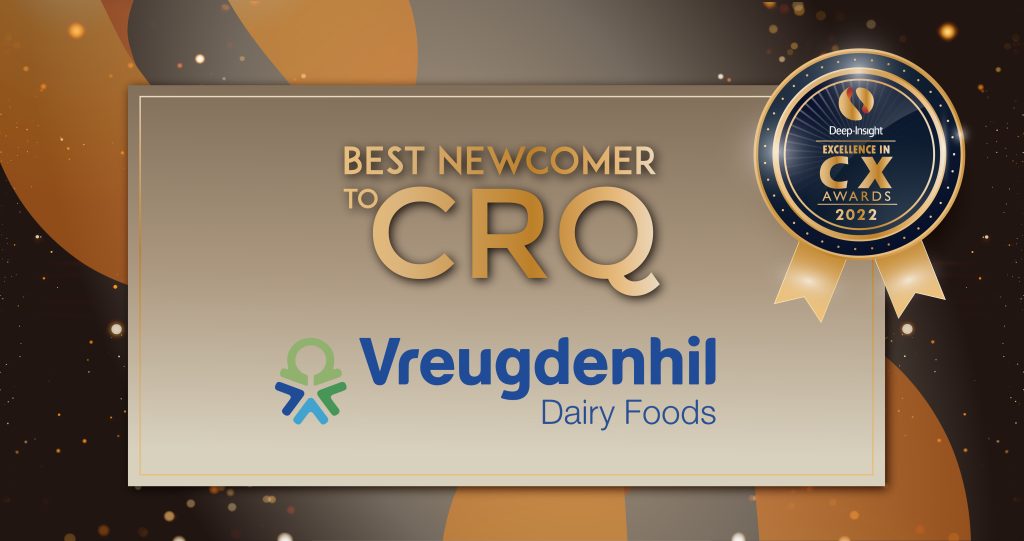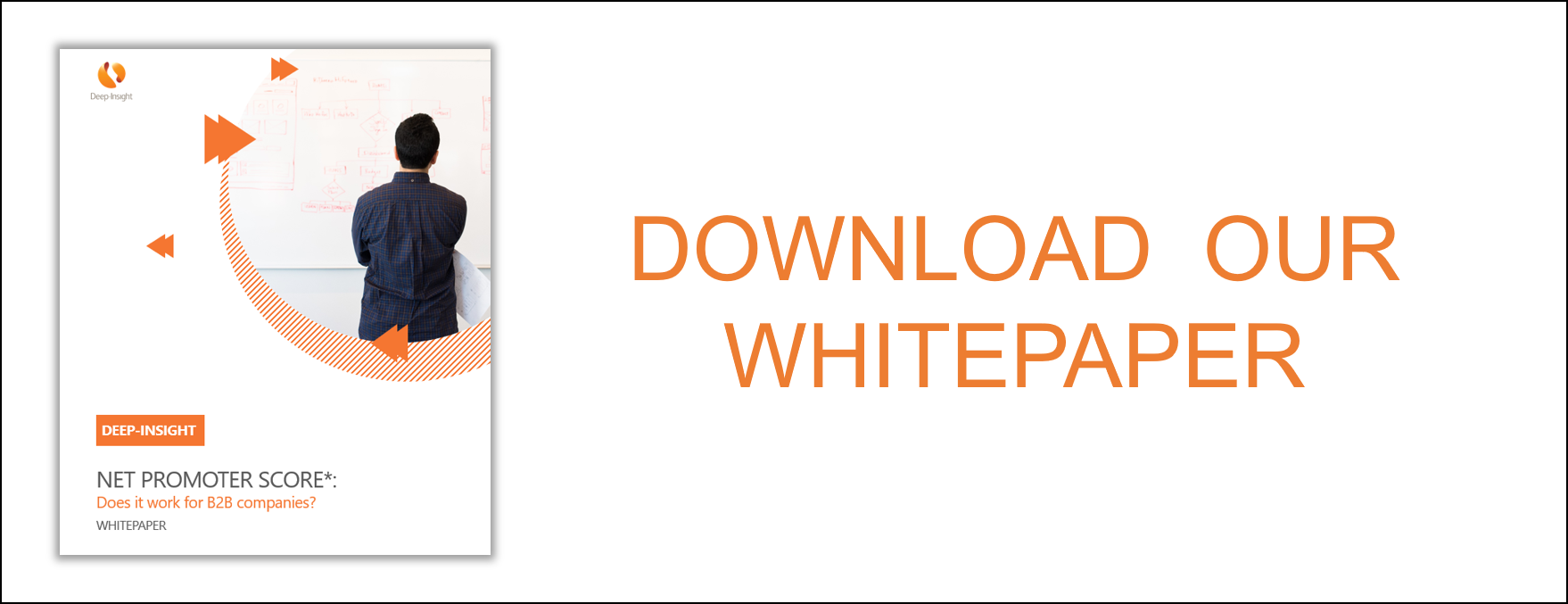Vreugdenhil Dairy Foods has won Best Newcomer to CRQ
Congratulations to Vreugdenhil Dairy Foods who have won Best Newcomer to CRQ!
Vreugdenhil Dairy Foods has been awarded Best Newcomer to CRQ in the Deep-Insight 2022 Excellence in CX awards and we are thrilled for them. This is a truly deserved award as it’s hard to believe that this organisation only ran its first Customer Relationship Quality (CRQ) assessment in 2022.
When we started working with Vreugdenhil Dairy Foods they were quite vocal about being relatively new to anything related to Customer Experience Feedback. They then impressed us by embracing the process like they had been at this for years. They got stuck in from the word ‘go’ (and even before) and kept their momentum up all through the live survey and throughout the reporting stages. They dived deep into their results to ensure they had specific actions for each area of the business that they could follow up on.

Rose Murphy, COO at Deep-Insight has said: “Vreugdenhil Dairy Foods are expert communicators. They are open to feedback, and they listen with care. They develop strategies that are in line with what their customers are telling them and have created a very sophisticated response to customers to keep them informed at every level. This is what it means to be customer centric”.

Gerben van Schaik, Commercial Director at Vreugdenhil Dairy Foods has said:
“In Vreugdenhil Dairy Foods, customers are at the forefront and are top of mind in everything we do. It is important to Vreugdenhil that we understand how our customers value the relationship they have with us. The research done together with Deep-Insight has given us a clear picture on how to develop even stronger relationships with our customers, with the hopes of an even better outcome in 2024.”
Congratulations to everyone in Vreugdenhill Dairy Foods, and a special shout-out to Leonie, Erik, Jeroen, Gerben and Harry!
About Vreugdenhil Dairy Foods
Vreugdenhil Dairy Foods is a leading provider of milk powder products as ingredients for nutrition across the food industry. Vreugdenhil Diary Foods has many years of experience in their field and works together with their chain partners to make a difference for their consumers across the globe. Their vision is: milk nutrition in everyone’s daily diet.
For more information, go to vreugdenhildairyfoods.com.
About Deep-Insight
Deep-Insight is a leading European B2B Customer Experience (CX) company founded in 2000 by a small team of ‘magicians’ with one goal: researching a way to read customers’ minds.
Today, Deep-Insight supports customers all over the world with the skills, tools and methodologies to help you operate world-class CX and EX programmes and transform your organisation.
For more information, go to deep-insight.com or email awards@deep-insight.com.






 Rose Murphy
Rose Murphy